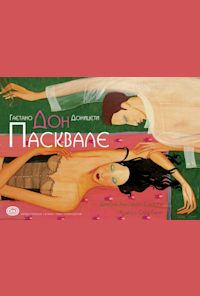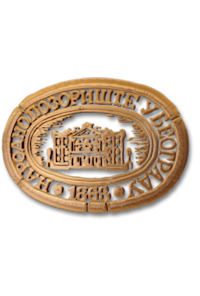In the works of the Italian composer Gaetano Donizetti (1797–1848, Bergamo), the comic opera Don Pasquale occupies the most prominent place. The audience is always happy to listen and watch this opera, singers compete in overcoming difficult and grateful roles, experts search for and find the original author's version of the score, prove the authorship of the librettist, and directors constantly find new and original approaches to indestructible work. It seems that the ravages of time, so ruthless in many parts of the music scene, fail to damage the tact of this opera. The work is neither new nor original, but generally known in the history of the theater. The music is fluent, listenable, unobtrusive, pleasant, witty - as needed. Nothing special happens on the stage, even set designers can't let their imagination run wild. And yet, on the whole, Don Posqualeis not only a success but also a masterpiece, one of the best comic operas in general, among the few that do not come off the opera scene. After a series of almost seventy operas of all genres, Donizetti wrote his masterpiece, according to correspondence, in just eleven days, during the autumn of 1842 in Paris. It has long been considered that he is also a libretto writer, and even today in various editions the name of the librettist is different! It was undoubtedly established that the opera Ser Marcantonio served as a modelStefano Pavezi, with the libretto by Angelo Anetti, performed in 1810 at the Scala in Milan. On the libretto, Donizetti collaborated with his friend, an Italian emigrant, the poet Giovanni Rufini, who preferred to remain anonymous - with the initials MA (Michela Acursi) and, as usual, rehearsed, directed and conducted himself. A story about an old guy, a stubborn, distrustful and stingy old-fashioned man, who wants to marry a young and beautiful girl in his old age and who, after a series of vicissitudes, a fake wedding and the sudden transformation of a meek bride into a gloomy, cruel, wasteful and violent asp, and by making it easier to get rid of these, in his eyes, real "temptations" - she was already interested in ancient comedians. In the comedy del arte, personalities and their vicissitudes are brought to virtuoso mastery through improvisation. Goldoni gladly dealt with similar situations, not without moralizing tendencies. Donizetti and his librettist simplify the work, summing up the number of personalities to only four singers (high female and male, and two deeper male voices), an arrogant false notary and numerous servants, who perform in the choir. But these are the same servants who start everything in the usual comedy del arte, in buffoon operas, with Moliere, Mozart and Da Ponte. However, these four singers are not puppets, but, thanks to their music and its expressiveness, real personalities. In addition to comic scenes and situations in which sparkling musical humor boils, shines and shines, rhythms intertwine, end, catch up, melodies flourish without delay - the opera even contains parts that represent a certain enrichment in relation to Rossini's buffoonery. Donizetti writes romantic music, emotional, inspired, sometimes sentimental, honest and beautiful. Exactly as required by the audience accustomed to the melodic Bellini (introductory part of Norina's cavatina, Ernest's aria and serenade, duet of Norina and Ernest). Irresistible buffoonery rules the opera from the very beginning: potpourri-overture using the most popular motifs of the opera, Don Pasquale's aria, all duets, lively part of Nora's cavatina, famous quartet in the finale of Act I, unbridled choir of servants and, as a special pearl, Don Pasquale's duet and Malateste, with countless quick repetitions - blabbering. Along with the music that depicts the inner life of the person, the plot is enriched with details that culminate when Norina slaps Don Pasquale, so there is a danger that everything will turn into a tragicomedy. In the end, not only the stingy old man was ridiculed, who did not succeed in preventing the love of the two young people, but a conciliatory tone was also introduced - the title character is not an old madman,Lucia of Lammermoor , Favorite and Lucrezia Borgia . At the beginning of the twentieth century, the comic operas Don Pasquale , Love Potion , were again performed by conductors Toscanini and Bruno Walter. Twenty years ago, the real renaissance of Donizetti began, critical editions of his long-forgotten operas were published, and scores that no one knows came to life on the stage. Operas with historical content - Anna Bolen , Maria Stewart , Roberto Devere and others, are shown at festivals with great success. It turns out that there are still singers who can successfully overcome the huge singing demands. More than comic operas, one-act plays are performedRita and the Night Bell as well as a joke from the life of opera artists Viva la tatma (Theatrical Accidents and Accidents). Time will tell whether these deeds were unjustly forgotten, or whether they were destined to stand by Don Pasquale . Don Pasquale was first performed on January 4, 1843 at the Italian Theater in Paris, with the most famous singer. Norina was interpreted by twenty-seven-year-old Julia Grisi, the idol of the audience, famous for the beauty of her voice and stature and for her exceptional stage charm and technical vocal virtuosity. Ernesto was played by the best lyrical tenor of the century, Giovanni Mario, Grizi's later husband; Malatestu-Antonio Tamburini, and the title role was played by the famous bass, forty-six-year-old Luigi Lablache.





